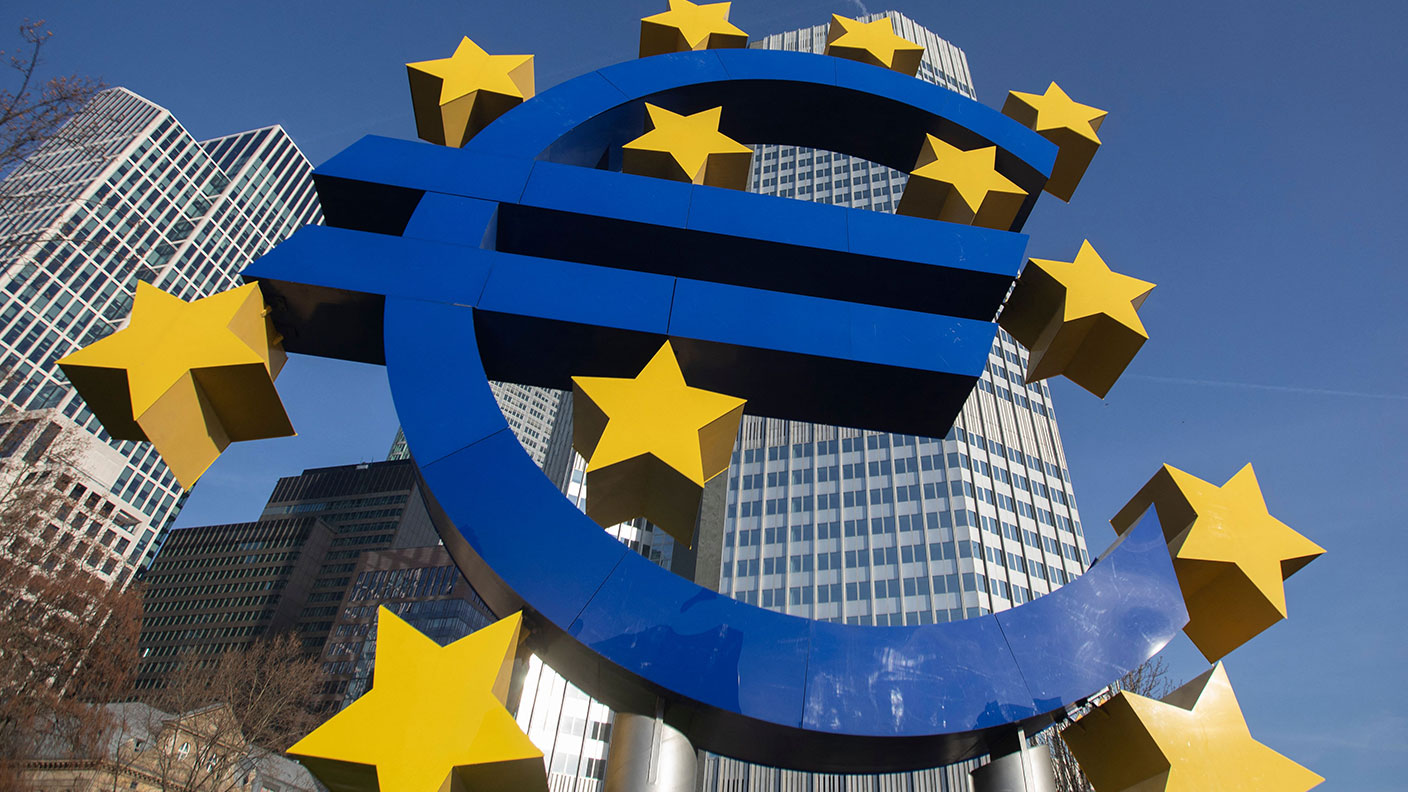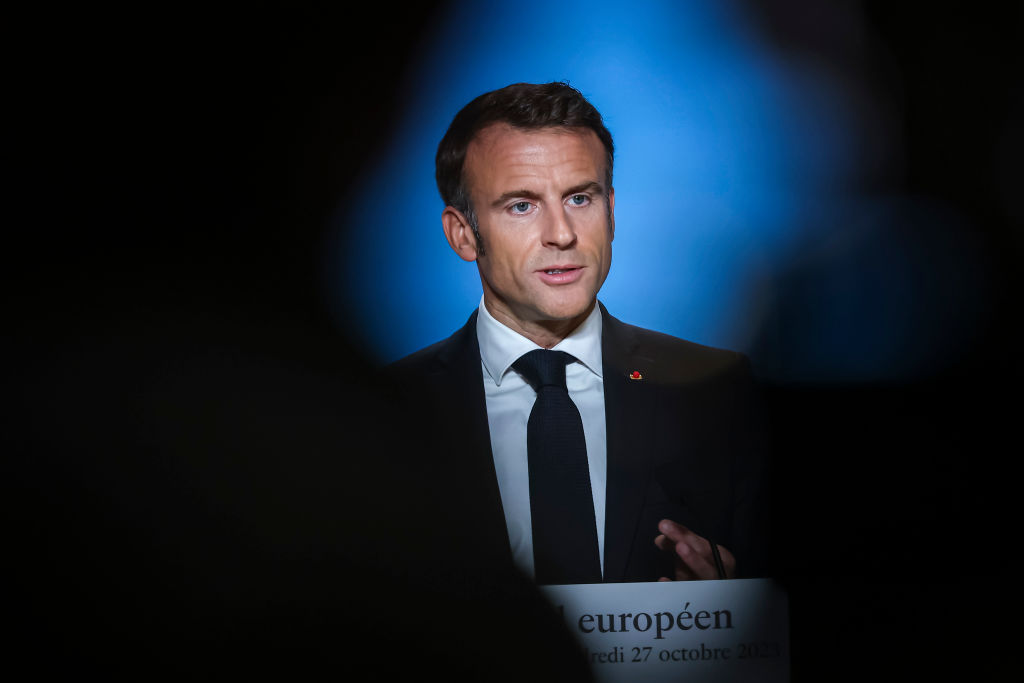ECB set to raise interest rates as stagflation beckons
With inflation at 8.1% and economic growth at just 0.3%, the eurozone is on the brink of stagflation. To combat it the European Central Bank is to stop buying bonds immediately and could raise interest rates next month.

Get the latest financial news, insights and expert analysis from our award-winning MoneyWeek team, to help you understand what really matters when it comes to your finances.
You are now subscribed
Your newsletter sign-up was successful
Want to add more newsletters?

Twice daily
MoneyWeek
Get the latest financial news, insights and expert analysis from our award-winning MoneyWeek team, to help you understand what really matters when it comes to your finances.

Four times a week
Look After My Bills
Sign up to our free money-saving newsletter, filled with the latest news and expert advice to help you find the best tips and deals for managing your bills. Start saving today!
“The eurozone is on the brink of stagflation,” says Eric Albert in Le Monde. Annual inflation hit 8.1% last month, a level unprecedented since the creation of the single currency. Energy prices, which rose at an annual rate of 39% in the past year, were the main cause, but “gradually the phenomenon is spreading to the entire economy”. At the same time, growth was just 0.3% in the first quarter. Industry is holding up reasonably well for now, but households are being “strangled by the sudden rise in the cost of living”.
Few economists “expect an outright recession” in the year ahead, says The Economist. “Many services firms are still reaping the rewards from reopening,” especially in the euro area’s tourism-reliant south. A cushion of pandemic savings and “plentiful” jobs should provide a backstop for consumer confidence. Yet the European Central Bank (ECB) finds itself in the tricky position of balancing soaring energy prices and a weaker growth outlook. In America loose government spending has contributed to rocketing inflation, but Europe’s price rises come mainly from the supply side, which a central bank can do little to control.
This week the ECB was poised to announce that it will stop buying bonds imminently. That should pave the way for interest-rate rises next month, say Dhara Ranasinghe, Tommy Wilkes and Saikat Chatterjee for Reuters. The bank’s deposit rate is currently at -0.5% and hasn’t been raised since 2011. There is growing speculation that policymakers might even opt for a 50-basis point rise (rather than the expected 25-point rise) to get inflation under control.
MoneyWeek
Subscribe to MoneyWeek today and get your first six magazine issues absolutely FREE

Sign up to Money Morning
Don't miss the latest investment and personal finances news, market analysis, plus money-saving tips with our free twice-daily newsletter
Don't miss the latest investment and personal finances news, market analysis, plus money-saving tips with our free twice-daily newsletter
Earnings can’t beat the gloom
The pan-European Stoxx 600 index is down more than 9% since the start of the year. Even so, corporate earnings have been robust, says Ian Johnston in the Financial Times. “Earnings per share grew by 42% for the 452 companies in Europe’s Stoxx 600 share index that reported first-quarter numbers,” compared with 9% for US stocks. About half of European blue-chip earnings come from outside Europe, so the weak euro is also juicing earnings.
Strong earnings have been powered by the commodity-price boom, says Société Générale. Commodity-linked sectors account “for close to 10% of the market capitalisation in Europe, but almost 20% of total earnings”. As of the end of April, the Stoxx 600 was trading at a forward price/earnings (p/e) ratio of 13.1, below historical averages. Yet that discount comes from historically low valuations for commodity firms. “Looking at the Stoxx 600 excluding commodity-linked sectors… the forward p/e is at 14.5 times, so still above the ten-year and 20-year historical averages.”
Still, on a long view, it might pay to look at Europe’s smaller stocks, says Ollie Beckett of Janus Henderson. European small caps returned 301% in the decade to the end of 2021, compared with 194% for large firms. “The European economy has been criticised for being sluggish, but the universe of smaller companies continues to produce dynamic and innovative businesses that are well-placed to benefit from… factors such as the energy transition, or the changing healthcare landscape.”
Get the latest financial news, insights and expert analysis from our award-winning MoneyWeek team, to help you understand what really matters when it comes to your finances.
Alex is an investment writer who has been contributing to MoneyWeek since 2015. He has been the magazine’s markets editor since 2019.
Alex has a passion for demystifying the often arcane world of finance for a general readership. While financial media tends to focus compulsively on the latest trend, the best opportunities can lie forgotten elsewhere.
He is especially interested in European equities – where his fluent French helps him to cover the continent’s largest bourse – and emerging markets, where his experience living in Beijing, and conversational Chinese, prove useful.
Hailing from Leeds, he studied Philosophy, Politics and Economics at the University of Oxford. He also holds a Master of Public Health from the University of Manchester.
-
 Early signs of the AI apocalypse?
Early signs of the AI apocalypse?Uncertainty is rife as investors question what the impact of AI will be.
-
 Reach for the stars to boost Britain's space industry
Reach for the stars to boost Britain's space industryopinion We can’t afford to neglect Britain's space industry. Unfortunately, the government is taking completely the wrong approach, says Matthew Lynn
-
 How have central banks evolved in the last century – and are they still fit for purpose?
How have central banks evolved in the last century – and are they still fit for purpose?The rise to power and dominance of the central banks has been a key theme in MoneyWeek in its 25 years. Has their rule been benign?
-
 Do we need central banks, or is it time to privatise money?
Do we need central banks, or is it time to privatise money?Analysis Free banking is one alternative to central banks, but would switching to a radical new system be worth the risk?
-
 The French economy's Macron bubble is bursting
The French economy's Macron bubble is burstingCheap debt and a luxury boom have flattered the French economy. That streak of luck is running out.
-
 The Bank of England can’t afford to hike interest rates again
The Bank of England can’t afford to hike interest rates againWith inflation falling, the cost of borrowing rising and the economy heading into an election year, the Bank of England can’t afford to increase interest rates again.
-
 UK wages grow at a record pace
UK wages grow at a record paceThe latest UK wages data will add pressure on the BoE to push interest rates even higher.
-
 Trapped in a time of zombie government
Trapped in a time of zombie governmentIt’s not just companies that are eking out an existence, says Max King. The state is in the twilight zone too.
-
 America is in deep denial over debt
America is in deep denial over debtThe downgrade in America’s credit rating was much criticised by the US government, says Alex Rankine. But was it a long time coming?
-
 UK economy avoids stagnation with surprise growth
UK economy avoids stagnation with surprise growthGross domestic product increased by 0.2% in the second quarter and by 0.5% in June